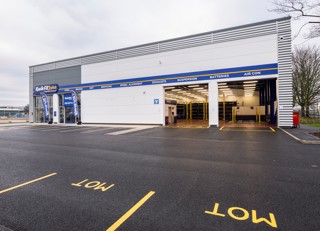New figures from Epyx show that the number of fleet service, maintenance and repair (SMR) jobs is back up to 60% of pre-coronavirus levels.
The company is basing this assessment on usage of its 1link Service Network, which is used by fleets totalling four million vehicles to manage their SMR processes.
In April, soon after lockdown, the number of job sheets raised through the platform, which represents the number of separate SMR transactions, fell as low as 18% of the average pre-coronavirus levels seen in February.
“Now, we are seeing definite signs of momentum with a noticeable increase in numbers every day,” said Tim Meadows, vice president and commercial director at Epyx.
“There is a definite feeling that fleets are getting back to work on quite a widespread basis.”
Meadows says that 1link Service Network had remained relatively busy through the quietest times of the lockdown, because of its use by essential worker fleets.
“Today, those essential fleets are still in action but they are being joined by a wider range of businesses and other organisations who are at the leading edge of a more concerted return to work.”
However, evidence is emerging from Epyx that SMR issues were arising with vehicles as they returned to use and that fleet managers and drivers needed to take care.
Meadows explained: “We’re hearing stories of the kinds of issues you would expect – flat tyres and flat batteries, for example – but also some more serious component failures.
“There is a risk management argument for cars and vans to be properly inspected by a technician before re-entering service if they have been parked up and unused for a while.”
Figures previously released by Kwik Fit showed the number of drivers visiting needing a new battery was double the usual rate for the time of year.
Battery failures traditionally spike in the winter months due to the greater demands placed on them in starting cold engines.
But, Kwik Fit said the impact of the lockdown has seen battery failures over the past few weeks increase to levels similar to the average for January over the past five years.
While this has mainly affected older vehicles, motorists with newer cars have also found their batteries struggling, it said.
The number of fleet vehicles, such as company cars, requiring new batteries has risen by around 10% compared to the same period last year.






















Login to comment
Comments
No comments have been made yet.